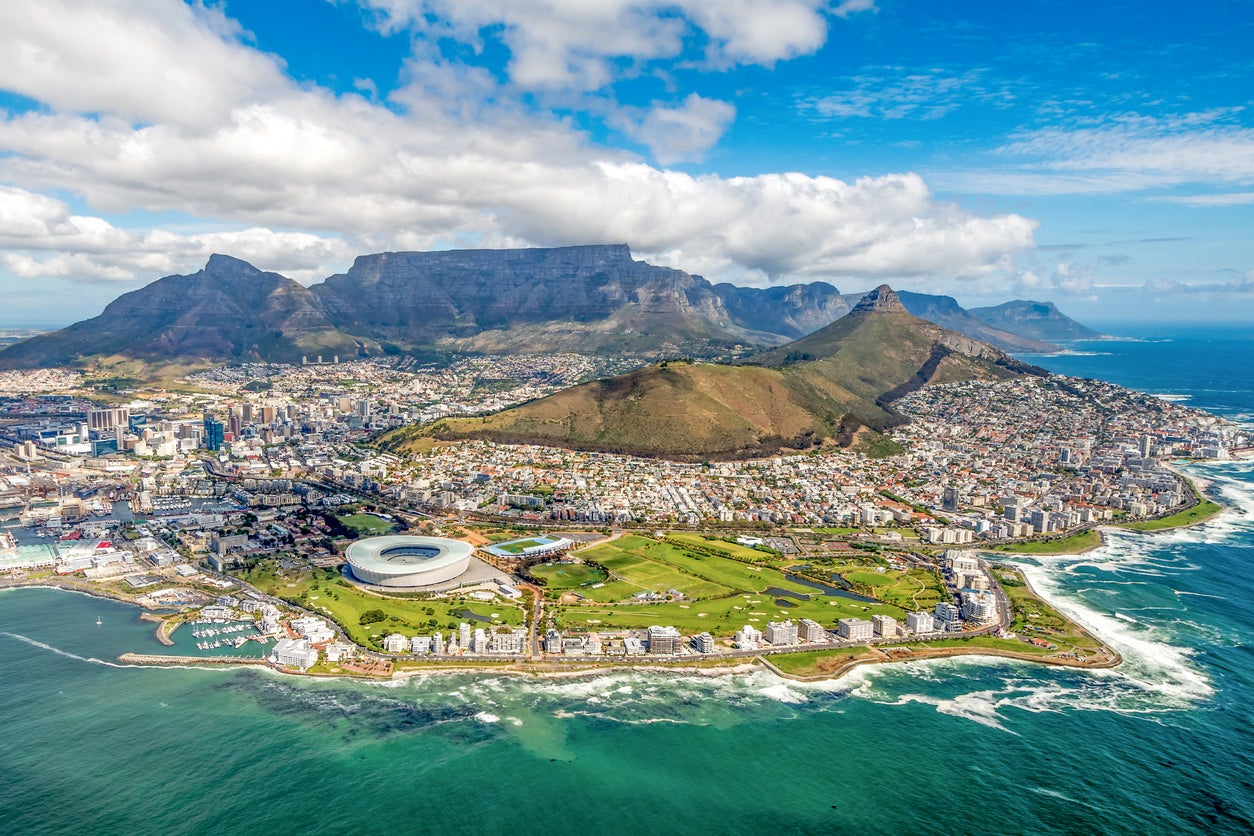Ask the experts: Will the UK’s red list remain as the travel system is overhauled?
‘There is really no justification for having a red list at all at this stage’ - analyst Donal Kane

Your support helps us to tell the story
From reproductive rights to climate change to Big Tech, The Independent is on the ground when the story is developing. Whether it's investigating the financials of Elon Musk's pro-Trump PAC or producing our latest documentary, 'The A Word', which shines a light on the American women fighting for reproductive rights, we know how important it is to parse out the facts from the messaging.
At such a critical moment in US history, we need reporters on the ground. Your donation allows us to keep sending journalists to speak to both sides of the story.
The Independent is trusted by Americans across the entire political spectrum. And unlike many other quality news outlets, we choose not to lock Americans out of our reporting and analysis with paywalls. We believe quality journalism should be available to everyone, paid for by those who can afford it.
Your support makes all the difference.As prospective travellers and the travel industry wait to learn about the latest changes to the government’s “traffic light” system of restrictions, attention is focused on the most complex “red list”.
At present there are more than 60 countries in the highest risk category. Arrivals from these destinations must pay £2,285 (for a solo traveller) for 11 nights in hotel quarantine.
Airlines and travel firms are calling for the red list to shrink. But two top analysts have told The Independent that the case for any red list has collapsed.
While some countries – such as Montenegro – are red-listed because of the sheer number of cases there, most have much lower infection numbers than the UK.
They are typically left on the red list to prevent the importation of “variants of concern”.
Robert Boyle, the former British Airways director who now runs Gridpoint Consulting, said: “I don’t believe there are really any countries with high instances of worrying variants.
“Excluding a handful of sequences where the variant was not identified, 99.7 per cent of the worldwide sequences in the week ending 4 September were Delta variant.
“Of the 45,809 sequences uploaded that week, there were zero instances of Beta. The previous week, there were three.
“Gamma and Mu also continue to die out.”
Donal Kane, the analyst – and frustrated traveller – who tweets as @EvilDoctorK concurred, saying: “There is really no justification for having a red list at all at this stage.
“There should be liberal entry for vaccinated travellers from anywhere, perhaps with some surveillance testing, with entry still possible but more restricted for unvaccinated travellers – but not hotel quarantine.
“The effort and resources expended on the red list public health theatrics would be better directed to improving vaccinations, disease surveillance and testing in countries that may pose a risk.”
But Mr Kane said that the lack of political opposition to the red list – and, in some circles, its popularity, means it is like to remain.
“I’d love to see the whole red list binned, but I’m a realist – it’s not going to happen in the short term.
“The next best thing for the moment is a significant reduction in its geographic scope, perhaps coupled with an exemption for vaccinated travellers.
“And if we’re looking at that scope reduction with an eye to variants it seems then that it’s only really South America where there’s any residual concern. But the case for Brazil and much of South America remaining on red is getting weaker every day.”
A third analyst, Ben McCluskey, said: “With 62 countries currently on the UK’s red list, there are numerous candidates suitable for removal, including South Africa, Turkey and Pakistan, all of which in the last 30 days have conducted a level of genomic sequencing comparable to countries currently on the UK’s amber list.
“Such data shows the dominant variant in these nations to be the Delta variant, the same strain of Covid most prevalent in the UK and European countries currently on the UK’s amber list.
“Additionally, the latest data from NHS Test and Trace shows that of the positive UK arrival cases sequenced, no variants of concern were identified.
“Like Ireland, the UK may keep many South American countries like Argentina, Brazil, Chile, Colombia and Peru on the ‘red’ list given increased prevalence of ‘variants of concern’ like Lambda, Gamma and Mu.
“The same may also be said for Egypt, where only a few genomes have been shared of late.”
Individual nations on the red list are lobbying more intensively against their status – and enlisting the help of senior politicians.
In a joint statement on behalf of the South African tourism instruct, Ben Bradshaw MP, Lord Oates and Baroness Chalker said, “The evidence clearly points to South Africa being removed from the red list. If the UK government wants to retain the integrity of its traffic light system, it must reward countries which empirically demonstrate they are safe by granting them amber status.”
David Frost, chief executive of SATSA – representing the Southern African inbound tourism industry – said: “Every week the UK keeps South Africa on its red list it erodes the vital economic and environmental ties between our two countries.
“Long after the threat from the pandemic fades, memories of Britain’s duplicity will endure.”
Join our commenting forum
Join thought-provoking conversations, follow other Independent readers and see their replies
Comments